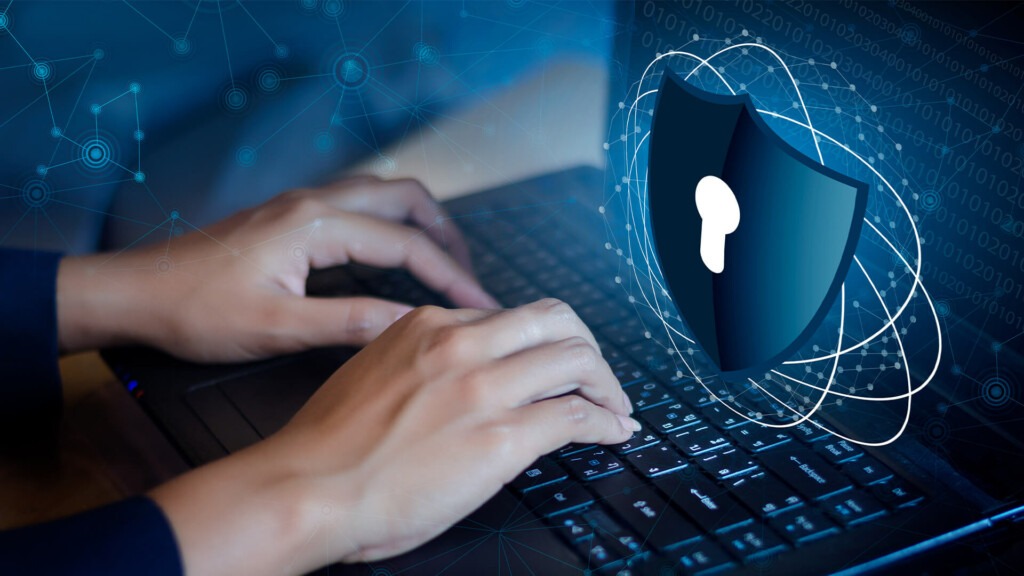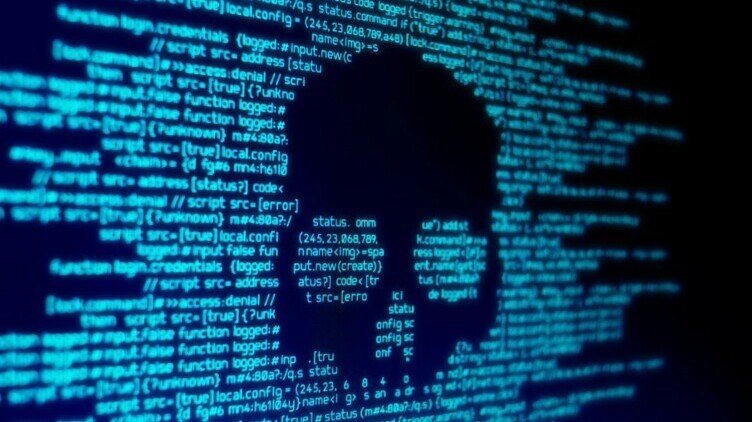Hamas & Cybercrime – An Overview
By SCARS Editorial Team/SCARS Analytics Team – Society of Citizens Against Relationship Scams Inc.
The Terrorist Organization Hamas Is Massively Involved In Cybercrime & Scams – To Fund Their Activities And To Disrupt Their Enemies!
Hamas is a Palestinian Sunni-Islamist militant and political organization that has a social service wing, Dawah that is massively involved in cybercrime. It has been designated as a terrorist organization by the United States, the European Union, Canada, Japan, and Israel.
How Is Hamas Involved In Cybercrime & Cyberterrorism
Hamas is known to use a variety of funding methods, including cybercrime:
- Taxes and levies: Hamas imposes taxes and levies on businesses and individuals in the Gaza Strip, where it controls the local government.
- Donations: Hamas receives donations from individuals and organizations around the world, including from Iran and other Muslim-majority countries.
- Smuggling: Hamas smuggles goods into and out of the Gaza Strip, including weapons and other contraband.
- Cybercrime: Hamas is also known to use cybercrime to generate revenue. In 2018, the Israeli Defense Force (IDF) accused Hamas of using a network of fake websites and social media accounts to steal credit card information from Israelis.
It is difficult to estimate the percentage of Hamas’s revenue that comes from cybercrime, as the organization does not disclose its financial information. However, experts believe that cybercrime is a significant source of income for Hamas. In 2017, a report by the Combating Terrorism Center at West Point Military Academy estimated that Hamas was generating up to $10 million per year from cybercrime.
Hamas’s use of cybercrime is a major concern for the international community. Cyberattacks can have a devastating impact on businesses and individuals, and they can also be used to fund terrorist activities. The international community must work together to combat Hamas’s use of cybercrime and to prevent the organization from using this type of activity to fund its terrorist activities.
According to the Atlantic Council
Hamas’s cyber capabilities will continue to advance, and the group will likely continue to leverage these tools in ways that will wield maximum influence over the information environment. Understanding how Hamas’s strategy and incentive structure guides its decision to leverage offensive cyber operations can provide insights, on a wider scale, about how non-state actors develop and implement cyber tools, and how the United States and its allies may be better able to counter these trends.
According to the Jerusalem Institute for Strategy and Security
The use of cyber-warfare enables terror organizations and weak nations to take advantage of an asymmetric domain in which military, economic and technological gaps are far less important. Thus, weak players can operate effectively against much stronger ones.
Hamas, a terror organization that is a rather weak sub-state actor mainly with respect to its military capabilities, and certainly relative to those of Israel, is taking advantage of the cyber domain in order to attack Israel with the limited means at its disposal.
According to Reuters
Hamas affiliated Hacktivist groups say they are hitting Israeli targets online amid the war in Israel and Gaza, disrupting and defacing websites like the Jerusalem Post.
The conflict between Israel and its Arab neighbors routinely attracts both intense global interest and politically minded hackers – dubbed hacktivists – who piggyback on the fighting, either to support their favored side or simply get attention.
“There are dozens of victims per day, claimed by both pre-established and new (hacktivist) groups,” cyber intelligence firm Recorded Future said.
Types of Cybercrimes & Cyberterrorism Hamas Commits
Hamas is engaged in a variety of cybercrime/cyberterrorist activities, including:
- Phishing attacks: Hamas uses phishing emails to trick people into revealing their personal information, such as credit card numbers, bank account numbers, and passwords.
- Malware attacks: Hamas uses malware to infect people’s computers and steal their data. Hamas has been known to use a variety of malware strains, including ransomware, Trojans, and spyware.
- DDoS attacks: Hamas uses DDoS attacks to overwhelm websites and servers, making them unavailable to users. Hamas has used DDoS attacks to target Israeli government and military websites, as well as websites of businesses that it believes are supporting Israel.
- Romance & Relationship scams: It is possible that Hamas operatives use social media to commit romance or relationship scams. For example, Hamas operatives have been found to create fake social media profiles and pose as potential romantic partners. The operative could use this fake profile to gain the victim’s trust and then steal their money or personal information.
Hamas targets a variety of people with its cybercrime activities, including:
- Civilians: Hamas has been known to target civilians with phishing attacks and malware attacks. Hamas may target civilians in order to steal their personal information or to infect their computers with malware that can be used to steal data or to launch DDoS attacks.
- Businesses: Hamas has also been known to target businesses with cybercrime activities. Hamas may target businesses in order to steal their trade secrets or to disrupt their operations.
- Government and military agencies: Hamas has also targeted government and military agencies with cybercrime activities. Hamas may target government and military agencies in order to steal sensitive information or disrupt their operations.
It is important to note that Hamas is not the only terrorist organization that is engaged in cybercrime. Other terrorist organizations, such as ISIS and al-Qaeda, have also been known to use cybercrime to fund their activities. For example, Al Qaeda was heavily involved in scams starting in the late 1990s.
The international community must work together to combat Hamas’s use of cybercrime and to prevent the organization from using this type of activity to fund its terrorist activities.
An Advisory To Scam Victims
In addition to the above safety guidelines, it is important to note that Hamas is a designated terrorist organization by many countries. This means that it is illegal to provide financial support to Hamas or to engage in any activities that could be construed as supporting Hamas.
Unknowingly, many scam victims may actually be helping to fund Hama and other terrorist organizations through the money stolen from them in scams. Victims want to be very careful to report all scams to their local police to make sure that their innocence is recorded, otherwise, if the money they sent did end up in the hands of a terrorist organization they do not face any complications or liability from it.
Related:
- The cyber strategy and operations of Hamas: Green flags and green hats – Atlantic Council
- POLITICO Pro | Article | Israel and the West reckon with a high-tech failure
- Hamas’ Cyber Activity against Israel – JISS
- Hybrid wars in the Middle East and Ukraine. Rapid Reset DDoS. Credential phishing. Patch Tuesday. (thecyberwire.com)
- Hacktivists stoke Israel-Gaza conflict online | Reuters
- Treasury Targets Covert Hamas Investment Network and Finance Official | U.S. Department of the Treasury
- Hamas – Wikipedia
More:
- U.S. Cyber Force Moves Forward (scamsnow.com)
- Israel Seized $1.7M in Crypto (scamsnow.com)
- Scams Fund Terrorism (romancescamsnow.com)
- The Saga of the Afghan Princess – A 9/11 Terrorism Connection to Scams & Scammers (romancescamsnow.com)
- Cyberterrorism – An Overview (romancescamsnow.com)
- Terrorism Connection – Al Qaeda Dating (romancescamsnow.com)
- The Cost Of Global Cybercrime (scamsnow.com)
SCARS Resources:
- For New Victims of Relationship Scams newvictim.AgainstScams.org
- Subscribe to SCARS Newsletter newsletter.againstscams.org
- Sign up for SCARS professional support & recovery groups, visit support.AgainstScams.org
- Find competent trauma counselors or therapists, visit counseling.AgainstScams.org
- Become a SCARS Member and get free counseling benefits, visit membership.AgainstScams.org
- Report each and every crime, learn how to at reporting.AgainstScams.org
- Learn more about Scams & Scammers at RomanceScamsNOW.com and ScamsNOW.com
- Global Cyber Alliance ACT Cybersecurity Tool Website: Actionable Cybersecurity Tools (ACT) (globalcyberalliance.org)
- Self-Help Books for Scam Victims are at shop.AgainstScams.org
- Donate to SCARS and help us help others at donate.AgainstScams.org
- Worldwide Crisis Hotlines: International Suicide Hotlines – OpenCounseling : OpenCounseling
- Campaign To End Scam Victim Blaming – 2024 (scamsnow.com)
More ScamsNOW.com Articles
-/ 30 /-
What do you think about this?
Please share your thoughts in a comment below!
SCARS LINKS: AgainstScams.org RomanceScamsNOW.com ContraEstafas.org ScammerPhotos.com Anyscam.com ScamsNOW.com
reporting.AgainstScams.org support.AgainstScams.org membership.AgainstScams.org donate.AgainstScams.org shop.AgainstScams.org
youtube.AgainstScams.org linkedin.AgainstScams.org facebook.AgainstScams.org
Important Information for New Scam Victims
- Please visit www.ScamVictimsSupport.org – a SCARS Website for New Scam Victims & Sextortion Victims.
- SCARS Institute now offers its free, safe, and private Scam Survivor’s Support Community at www.SCARScommunity.org – this is not on a social media platform, it is our own safe & secure platform created by the SCARS Institute especially for scam victims & survivors.
- SCARS Institute now offers a free recovery learning program at www.SCARSeducation.org.
- Please visit www.ScamPsychology.org – to more fully understand the psychological concepts involved in scams and scam victim recovery.
If you are looking for local trauma counselors, please visit counseling.AgainstScams.org
If you need to speak with someone now, you can dial 988 or find phone numbers for crisis hotlines all around the world here: www.opencounseling.com/suicide-hotlines
Statement About Victim Blaming
Some of our articles discuss various aspects of victims. This is both about better understanding victims (the science of victimology) and their behaviors and psychology. This helps us to educate victims/survivors about why these crimes happened and not to blame themselves, better develop recovery programs, and help victims avoid scams in the future. At times, this may sound like blaming the victim, but it does not blame scam victims; we are simply explaining the hows and whys of the experience victims have.
These articles, about the Psychology of Scams or Victim Psychology – meaning that all humans have psychological or cognitive characteristics in common that can either be exploited or work against us – help us all to understand the unique challenges victims face before, during, and after scams, fraud, or cybercrimes. These sometimes talk about some of the vulnerabilities the scammers exploit. Victims rarely have control of them or are even aware of them, until something like a scam happens, and then they can learn how their mind works and how to overcome these mechanisms.
Articles like these help victims and others understand these processes and how to help prevent them from being exploited again or to help them recover more easily by understanding their post-scam behaviors. Learn more about the Psychology of Scams at www.ScamPsychology.org
SCARS INSTITUTE RESOURCES:
If You Have Been Victimized By A Scam Or Cybercrime
♦ If you are a victim of scams, go to www.ScamVictimsSupport.org for real knowledge and help
♦ SCARS Institute now offers its free, safe, and private Scam Survivor’s Support Community at www.SCARScommunity.org/register – this is not on a social media platform, it is our own safe & secure platform created by the SCARS Institute especially for scam victims & survivors.
♦ Enroll in SCARS Scam Survivor’s School now at www.SCARSeducation.org
♦ To report criminals, visit https://reporting.AgainstScams.org – we will NEVER give your data to money recovery companies like some do!
♦ Follow us and find our podcasts, webinars, and helpful videos on YouTube: https://www.youtube.com/@RomancescamsNowcom
♦ Learn about the Psychology of Scams at www.ScamPsychology.org
♦ Dig deeper into the reality of scams, fraud, and cybercrime at www.ScamsNOW.com and www.RomanceScamsNOW.com
♦ Scam Survivor’s Stories: www.ScamSurvivorStories.org
♦ For Scam Victim Advocates visit www.ScamVictimsAdvocates.org
♦ See more scammer photos on www.ScammerPhotos.com
You can also find the SCARS Institute’s knowledge and information on Facebook, Instagram, X, LinkedIn, and TruthSocial
Psychology Disclaimer:
All articles about psychology and the human brain on this website are for information & education only
The information provided in this and other SCARS articles are intended for educational and self-help purposes only and should not be construed as a substitute for professional therapy or counseling.
Note about Mindfulness: Mindfulness practices have the potential to create psychological distress for some individuals. Please consult a mental health professional or experienced meditation instructor for guidance should you encounter difficulties.
While any self-help techniques outlined herein may be beneficial for scam victims seeking to recover from their experience and move towards recovery, it is important to consult with a qualified mental health professional before initiating any course of action. Each individual’s experience and needs are unique, and what works for one person may not be suitable for another.
Additionally, any approach may not be appropriate for individuals with certain pre-existing mental health conditions or trauma histories. It is advisable to seek guidance from a licensed therapist or counselor who can provide personalized support, guidance, and treatment tailored to your specific needs.
If you are experiencing significant distress or emotional difficulties related to a scam or other traumatic event, please consult your doctor or mental health provider for appropriate care and support.
Also read our SCARS Institute Statement about Professional Care for Scam Victims – click here
If you are in crisis, feeling desperate, or in despair, please call 988 or your local crisis hotline – international numbers here.
More ScamsNOW.com Articles
A Question of Trust
At the SCARS Institute, we invite you to do your own research on the topics we speak about and publish. Our team investigates the subject being discussed, especially when it comes to understanding the scam victims-survivors’ experience. You can do Google searches, but in many cases, you will have to wade through scientific papers and studies. However, remember that biases and perspectives matter and influence the outcome. Regardless, we encourage you to explore these topics as thoroughly as you can for your own awareness.

























![NavyLogo@4x-81[1] Hamas & Cybercrime - An Overview](https://scamsnow.com/wp-content/uploads/2025/04/NavyLogo@4x-811.png)
![scars-institute[1] Hamas & Cybercrime - An Overview](https://scamsnow.com/wp-content/uploads/2025/04/scars-institute1.png)

![niprc1.png1_-150×1501-1[1] Hamas & Cybercrime - An Overview](https://scamsnow.com/wp-content/uploads/2025/04/niprc1.png1_-150x1501-11.webp)